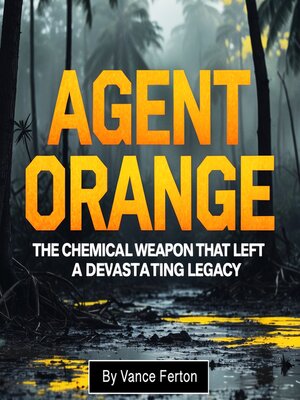Agent Orange
audiobook (Unabridged) ∣ The Chemical Weapon That Left a Devastating Legacy
By Vance Ferton

Sign up to save your library
With an OverDrive account, you can save your favorite libraries for at-a-glance information about availability. Find out more about OverDrive accounts.
Find this title in Libby, the library reading app by OverDrive.



Search for a digital library with this title
Title found at these libraries:
| Library Name | Distance |
|---|---|
| Loading... |
This audiobook is narrated by a digital voice.
The development of Agent Orange emerged from the intersection of wartime necessity and scientific advancement during the early 1960s, as American military strategists sought technological solutions to the unique challenges posed by guerrilla warfare in the dense jungles of Southeast Asia. The chemical compound that would become synonymous with environmental destruction and human suffering originated in agricultural research laboratories where scientists had been developing herbicides to increase crop yields and eliminate unwanted vegetation. The transformation of these agricultural chemicals into weapons of war represented a fundamental shift in military thinking that would have consequences extending far beyond the battlefields of Vietnam.
The basic chemistry of Agent Orange consisted of a fifty-fifty mixture of two synthetic herbicides, 2,4-dichlorophenoxyacetic acid and 2,4,5-trichlorophenoxyacetic acid, which had been developed during the 1940s as part of agricultural research programs aimed at controlling weeds and increasing agricultural productivity. These compounds worked by mimicking natural plant hormones and causing rapid, uncontrolled growth that ultimately killed the targeted vegetation. When combined in the formulation that became known as Agent Orange, named for the orange stripe painted on storage containers, these chemicals created a powerful defoliant capable of stripping leaves from trees and destroying crops over vast areas.







